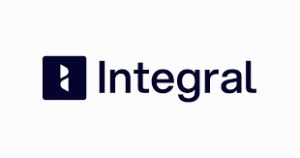A Ledger That Writes Itself: Digits and the New Automation Push

Accounting has long been seen as one of the more resistant professions to automation. It is dense with regulation, full of edge cases, and grounded in judgment as much as in arithmetic. But in 2025, a startup from San Francisco is arguing that the machines are ready.
Digits was co-founded by Wayne Chang and Jeff Seibert. The company is betting that artificial intelligence can replace almost every routine accounting task for small and medium-sized businesses. Not improve. Replace.
Its goal is not just to digitise bookkeeping, but to remove the need for human input almost entirely.
A system that never sleeps
At the heart of Digits is its so-called Autonomous General Ledger, or AGL. Trained on over $825 billion in transactions, the AGL handles categorisation, reconciliation, invoicing, and financial reporting in real time. It connects to a business’s financial systems and learns continuously from every transaction it processes.
This year, Digits introduced a suite of AI “agents” that operate on top of the AGL. The agents are designed to carry out complete accounting workflows, without delay and without pause.
According to the company, the system can now:
- Categorise 93% of transactions without user input
- Complete 95% of bookkeeping tasks autonomously
- Deliver 97.8% accuracy across full accounting workflows
- Operate 8,500 times faster than a team of human accountants
These claims are based on a benchmark in which Digits’ agents processed 2,000 transactions alongside a dozen outsourced professionals. The agents not only outpaced them but produced cleaner books at 24 times lower cost.
Digits does not describe this as a supplement to the finance team. It sees it as a replacement.
The product, piece by piece
In the past year, the company has introduced many tools. These tools are designed to serve as a full-stack financial operating system for early-stage companies. These include:
- AI Invoicing: generates and tracks invoices with automatic reconciliation
- Bill Pay: streamlines vendor payments through one interface
- Live Dashboards: offer real-time visibility into spending and cash position
- Payroll Integration: with Gusto and other providers for seamless sync
- Audit Trail: a compliant, always-on log of every system action
The result is a system that does not wait for the month to end before closing the books. The books, for the most part, are already closed.
Digits is pricing the product at accessible rates. The starting tier is $65 per month. A free trial is aimed at capturing founders and finance teams at early stages.
Between trust and control
Unlike some generative AI startups, Digits does not position itself as a chatbot or an assistant. It is not built on prompting or conversational interaction. It is built for accuracy, auditability, and control. That positioning has won it interest from both startups and accounting firms looking to modernise.
Firms such as Armanino and Hiline have adopted the platform internally. These are not experimental users. They represent a larger shift in the industry. Automation tools are being utilized more frequently. This allows human accountants to focus on advisory services.
Still, the platform has its critics. Skeptics argue that financial edge cases, tax-specific exceptions, and client nuance will limit automation in the near term. Digits acknowledges the limits. Its agents escalate anything unclear to a human reviewer. But the company insists the bar for automation is far higher than most expect, and falling fast.
A slow burn, a sudden push
Digits has existed for years with relatively little fanfare. The company raised venture capital early but kept quiet as it focused on model performance and infrastructure. Only in 2025 did it emerge with a commercial-grade product and public benchmarks.
It also chose its timing carefully. Startups are under pressure to cut costs. Talent in accounting remains scarce. And AI has reached a level where performance and cost advantages are impossible to ignore.
Digits now finds itself in a favourable position. There is no dominant incumbent in its category. It has no legacy codebase to work around. It offers a product that performs a task everyone would rather not do.
It is not trying to make finance beautiful. It is trying to make it disappear.





